Cervantes and tapas: the Alcalá de Henares podcast
Every year, the King of Spain pays a visit to Alcalá de Henares, to present the country’s most prestigious literary award: the Miguel de Cervantes prize. Why there and not one of Spain’s larger and more well-known cities like Madrid or Barcelona? Because Alcalá is the birthplace of the aforementioned Miguel de Cervantes, author of Don Quixote and the Spanish-language equivalent of Shakespeare.
Alcalá has more than just this one claim to fame: it’s also a UNESCO world heritage site and boasts the longest porticoed street in Europe. It was originally founded by the Romans, was named by the Moors, and one of the world’s first universities was founded there.
To listen, hit play below or find episode 305 in iTunes, Stitcher or Soundcloud:
Location and arrival
Alcalá de Henares is located in the province of Madrid in central Spain, and is only 35km from the city of Madrid itself. This makes it an easy day trip from the capital or a pleasant alternative to the bustle of Spain’s biggest city.
There’s a direct bus from Madrid’s Barajas airport to Alcalá (number 824, €3.60), which takes about 50 minutes. If you’re coming from Madrid you can catch a bus from the Avenida de America bus station or a Cercanias train from many stations in the city (lines 2 and 7, €3.60). Alcalá itself doesn’t have a bus station, and though it is possible to catch intercity buses and trains, you’ll probably find better connections to the rest of Spain in Madrid.
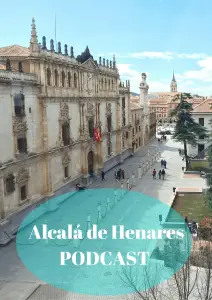
Sleep
We were pleasantly surprised by the price of accommodation in Alcalá, living there is certainly cheaper than in the centre of Madrid! We had luck with AirBnB, but when Craig’s parents came to visit they were happy with their choice of hotel, El Bedel. It’s right in the centre of town but yet manages not to be noisy. Even the Parador is not too pricy! There aren’t any hostels, but there are quite a few Couchsurfing hosts if you’re looking for a more immersive experience.
Eat and drink
Alcalá is a wonderful city for an evening out, due in part to the fact that many restaurants serve a free tapa with your drink. This custom is common in other parts of Spain, such as Granada and Córdoba, but isn’t widely practiced in Madrid. Wine, beer and soft drinks generally cost €2.50-€4; you’ll pay more for spirits.
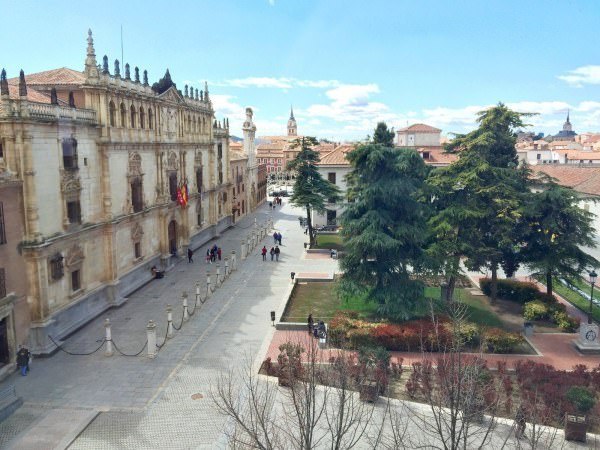
Our top picks for a tapa tour are:
Indalo: a beautiful picture menu makes it easy to choose your tapa. We often picked chipirones (baby squid).
El Quinto Tapón: an the eclectic collection of chairs are always full, and the menu is extensive, offering tapas from various countries.
La Taberna de Rusty: just around the corner from Indalo, this was our go-to on a Friday night. Tapas are priced individually (you don’t get one free) but drinks are cheaper to make up for it. Try the solomillo.
El Gato de Tres Patas: Tapas are €0.80 when you buy a drink, and there are some great craft beers available. We loved El Gato for its collection of board games.
Noa: this wine and gin club was our favourite upscale bar. Tapas are free but you don’t get to choose, and availability tends to depend on whether the chef has arrived yet or not.
Metropoli: Get your fix of chocolate con churros any time of day (well, until 10pm) at this great cafe right on the main square.
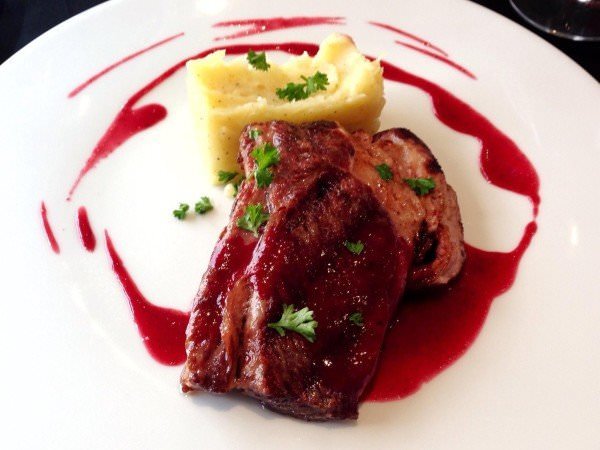
See and do
Alcalá is perfect for just walking around. Start in the main square (the Plaza de Cervantes) for a good view of some of the university buildings, and pay a visit to the Cervantes interpretation centre in the half-destroyed church at one end of the square. If you want to go up the bell tower you’ll have to head around to the tourist information office for tickets, and you might find the opening hours a bit strange — we certainly did, which is why we never managed to go up despite living there for ten months.
Hidden on one side of the square is the Corral de Comedias, a theatre in the style of Shakespeare’s Globe and of similar antiquity. It’s been mostly rebuilt but is a charming place to see a play, so if your visit coincides with a performance, it might be worth considering. In summer there are guided tours, but they were only offered in Spanish when we were there. Ask at the tourist office in the Plaza de Cervantes.
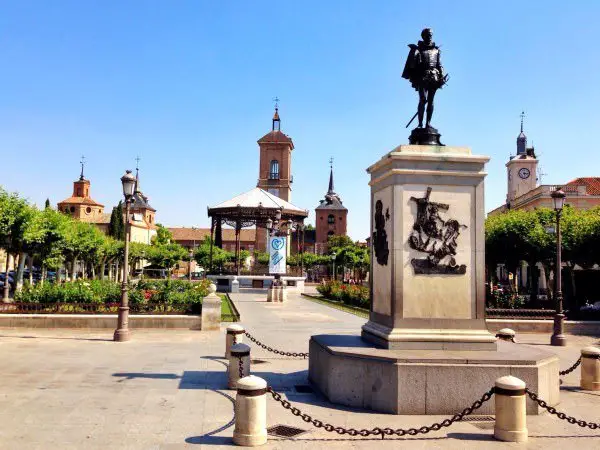
Calle Mayor is the city’s main street. It’s pedestrianised, porticoed, and lined with bars and shops. Wander down slowly, stopping for a drink if necessary, and on your right you’ll come across a bronze statue of Don Quixote and his sidekick Sancho Panza. They are sitting outside Cervantes’ house, which is free to enter and worth a visit. Afterwards, continue down to the cathedral, which is named after two Roman boys who were martyred in this location. It costs a couple of euros to enter.
The archaeological museum, about three minutes’ walk from the cathedral, is free to enter but all signs are in Spanish only. It’s air-conditioned, though, so is a great place for a wander on a hot summer’s day. On your way there, you’ll pass the Casa de la Entrevista, where Christopher Colombus met the Catholic Monarchs Isabel and Ferdinand and asked for permission to set off on his expedition. It’s now used for art exhibitions and is free to enter.
In October of every year, the medieval market takes over the city for six days. It’s apparently the largest medieval market in Europe and is really quite nice — lots of food stalls as well as a combination of souvenirs and medieval items.
Alcalá is a charming city that is definitely worth a visit while you’re in Spain — just be prepared for Cervantes to be ever-present!
To listen, hit play above or check in iTunes, Stitcher or Soundcloud.

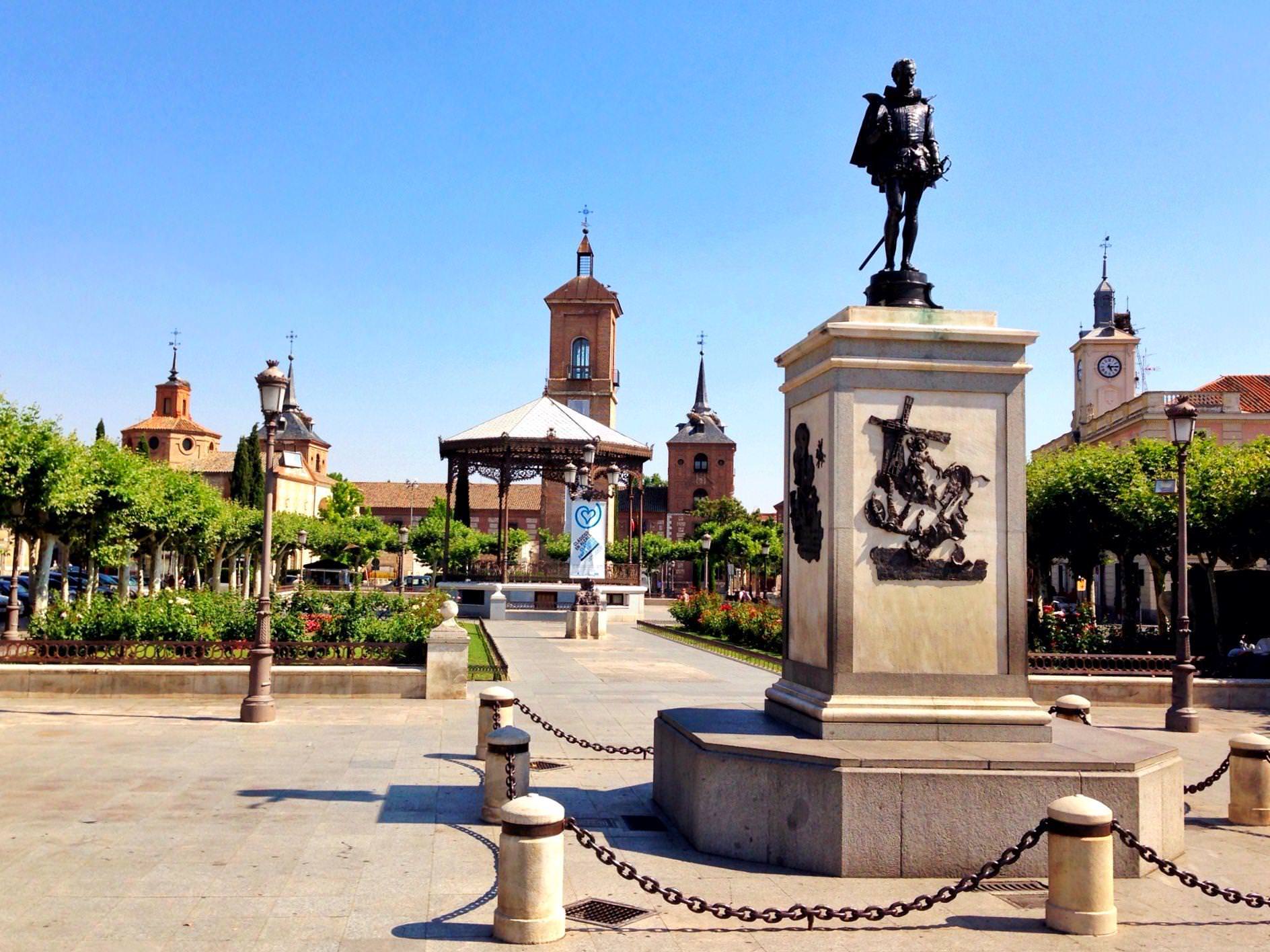
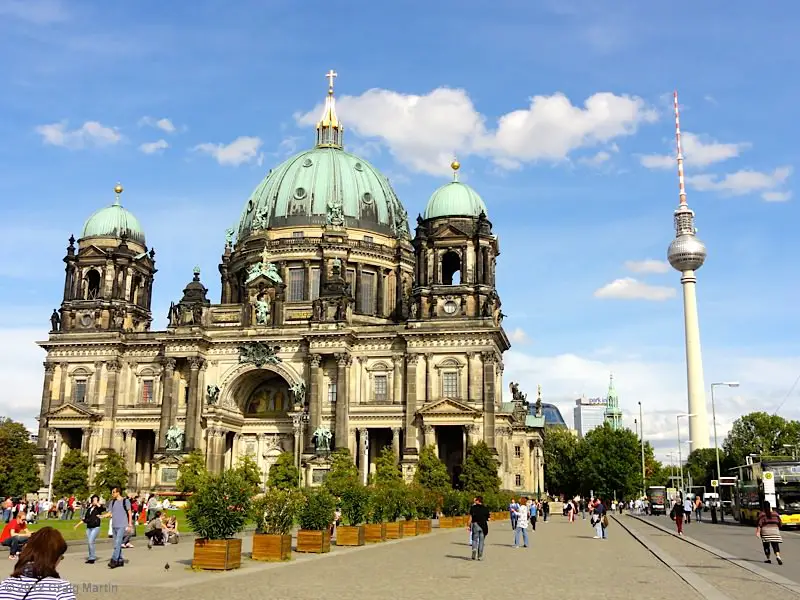
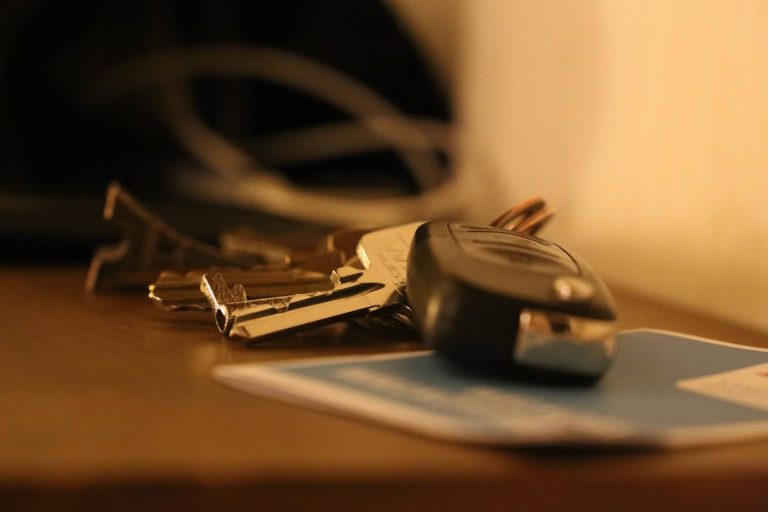
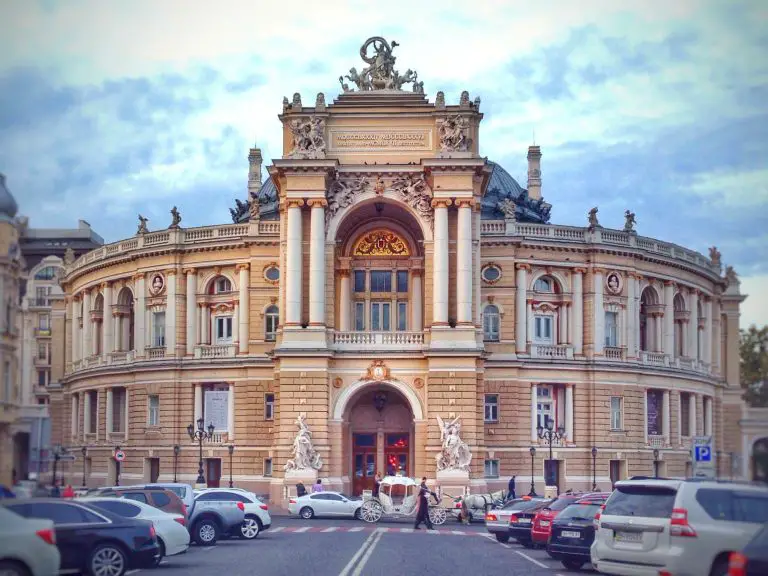
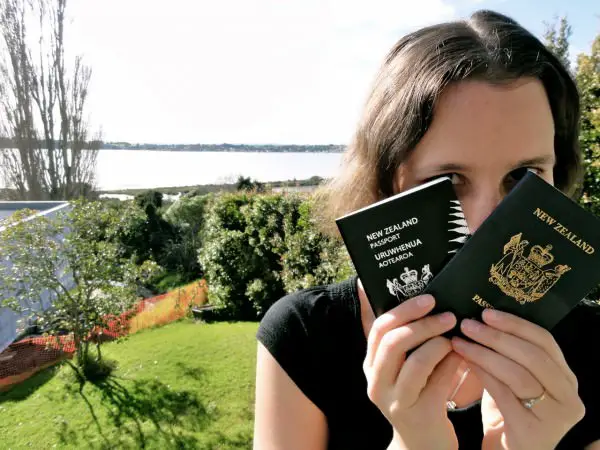
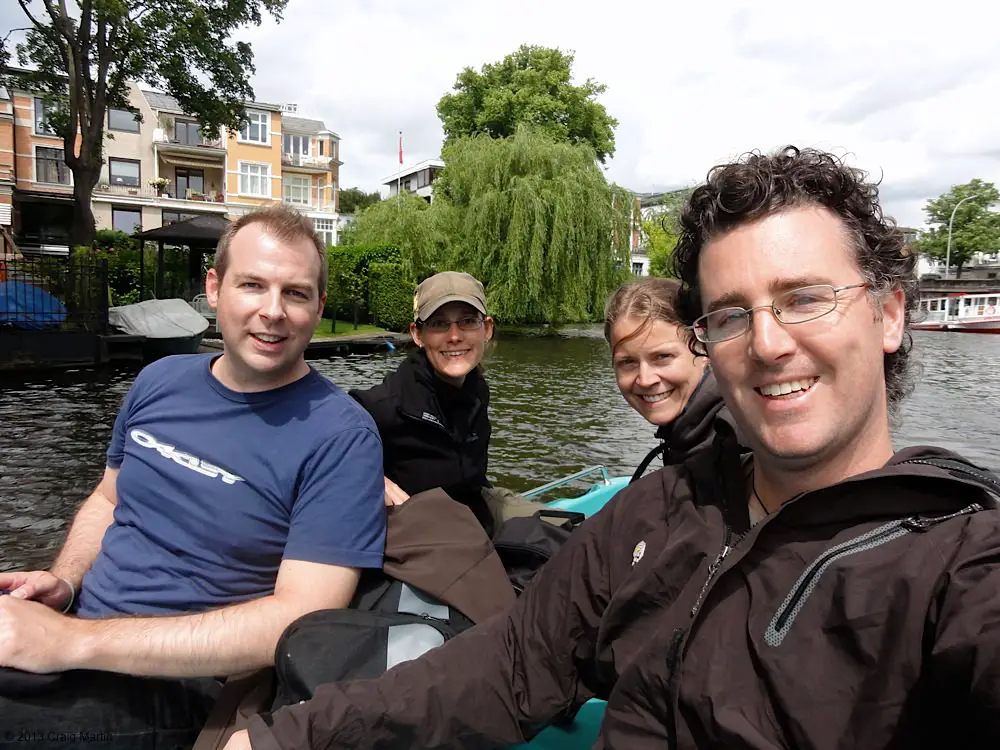
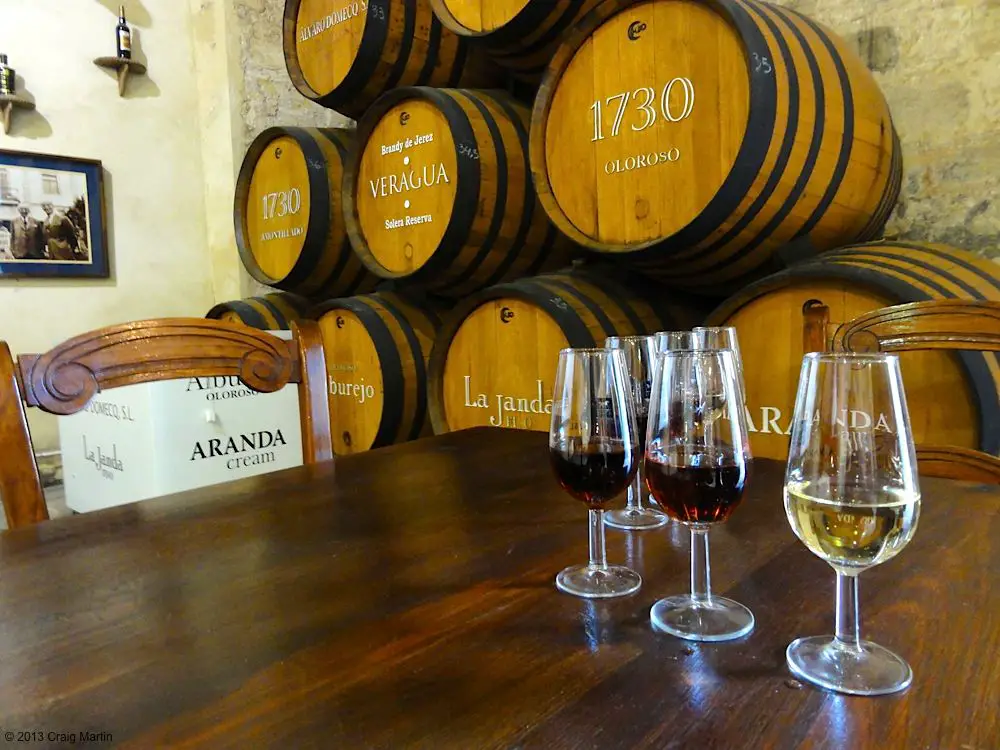
Very interesting. Thanks for sharing this post .
I had never heard of Alcala before reading this but it sounds beautiful! I’m going to suggest it to my parents as they’ve been looking at Granada as somewhere to go this autumn and they’d definitely enjoy somewhere a little less busy.
By the way Linda, it was great to meet you on Friday night at Blogstock! I love listening to Podcasts on my commute to and from the office and I’m going to download a backlog of yours as soon as I get home, I’m definitely looking forward to your recent podcast on Berlin.
Hi Rebecca! It was lovely to meet you too, I hope you enjoy the podcasts. Granada is great but certainly busy, and Alcalá really is a special place to visit.
As somebody who grew up in Alcalá de Henares, it is very nice to listen to such a complimentary podcast. Thank you for putting together this lovely piece of work, it really made my day and I arrived at work with a big smile (and admittedly a bit homesick).
Greetings from Berlin
Thanks Juan Carlos! I’m so glad you enjoyed it, I’m sorry for making you homesick! Greetings from Colombia.
I stumbled on your website and podcast when looking to educate myself on Alcala de Heneras. We live in the United States, and this coming summer we will welcome a foreign exchange student who lives in Alcala de Heneras. It was nice to hear your description of the town and the architecture. I was able to learn more about his home. Thank you!
Hi Anne Marie,
I’m so glad our podcast was useful! We really loved Alcalá, and found the people there to be very friendly as well — I’m sure you’ll love your exchange student too!